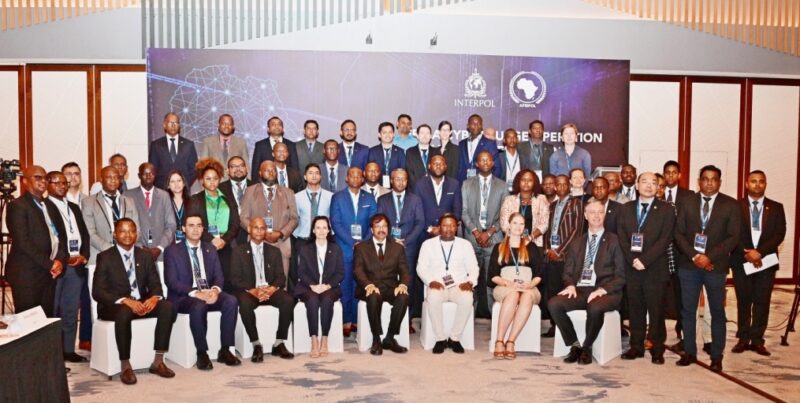
A debriefing session, following the Africa Cyber Surge Operation organised in Kigali in Rwanda from 18 July to 05 August 2022, is being held in Mauritius from 22 to 24 November 2022.
In this context, an opening ceremony was held, this morning, at Le Meridien Hotel in Pointe aux Piments, in the presence of the Deputy Commissioner of Police (DSP), Mr Hemant Jangi; the Assistant Director Cybercrime Directorate, Cybercrime Threat, Response, at INTERPOL, Mrs Jacqueline De Lange; and the Head of Information and Communication Technology of AFRIPOL, Mr Adoulaye Doucouré.
The event is an initiative of the INTERPOL and the AFRIPOL, and has as objective to promote cross-fertilisation of ideas and sharing of best practices with regard to cybercrimes. Participants from 28 countries, namely Kenya, Eritrea, Ghana, Gambia, amongst others, are attending the session.
In his address, DSP Jangi highlighted that the Africa Cyber Surge was a multi-national cybercrime suppression operation focused on identifying cyber-criminal and their network infrastructure, and was aimed at supporting member countries as well as law enforcement agencies in their combat against cybercrime.
He indicated that criminals were misusing new technologies to target people on social networks and online systems, adding that phishing, ransomware and data breaches were examples of current cyber threats.
“The debriefing session,” he said, “aims at assessing the effectiveness of the operation, discussing on the outcomes, and identifying challenges.” “It will also enable participants to become more aware of the current situation as regards cyber threats and to further develop their competencies in tackling these issues,” he stated.
Mrs De Lange observed that cases of cybercrime were expected to increase in the next three to five years, adding that it was essential to develop and create a united front in the face of these challenges. “The INTERPOL,” she said, “is a global organisation supporting 195 member countries to gain the knowledge and skills relevant in tackling cyber threats and transnational crimes.”
“It is crucial that there is coordination among all the different players in maintaining a global security architecture,” she indicated. Through the session, the INTERPOL along with the AFRIPOL is providing a platform for stronger cooperation, better coordination and capacity building of law enforcement agencies.
Mr Doucouré underlined that the AFRIPOL was an independent mechanism of the African Union and a key stakeholder in the fight against transnational organised crime. He pointed out that the African continent had a huge potential in the ICT sector, but that there was a high surge of cybercrime due to the increasing use of new technologies, thus endangering safety of information and data. “The debriefing session,” he added, “is an opportunity for member countries to meet, discuss and come up with stronger actions to tackle cybercrime.”